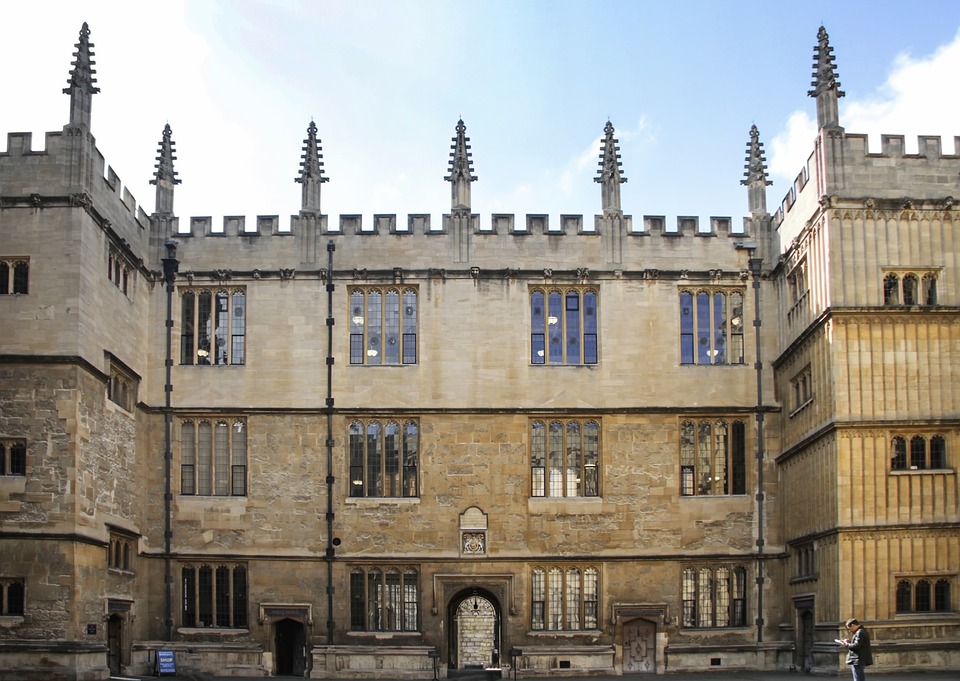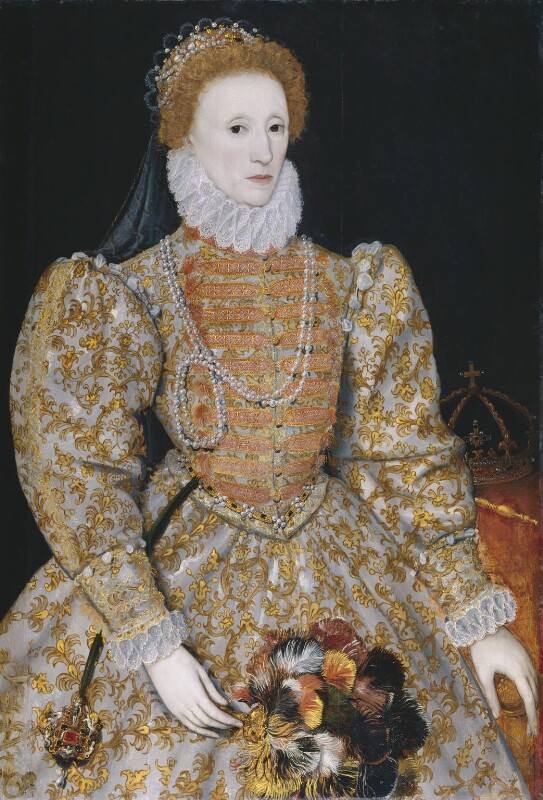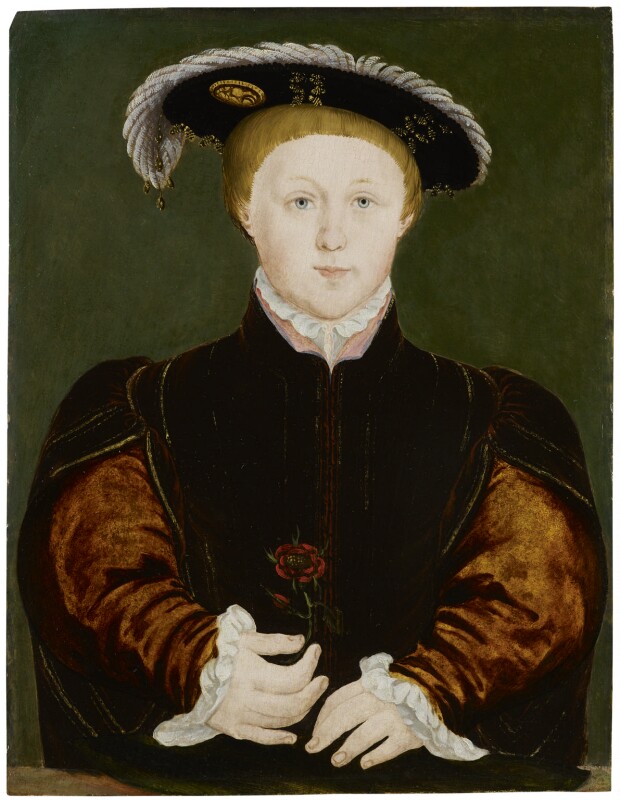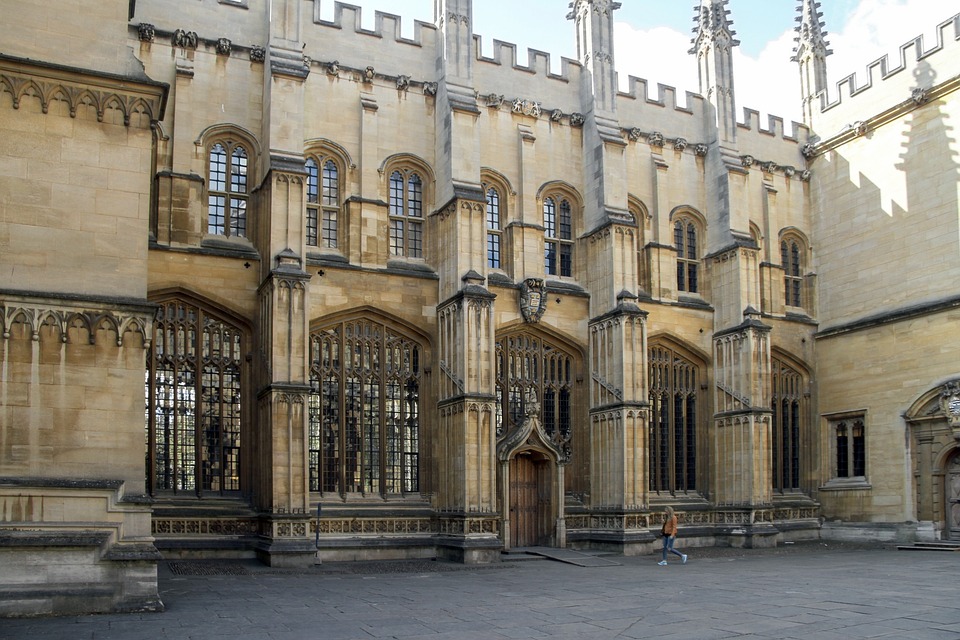You may remember that in the past this blog has featured clips from our sixth form literary masterclass: our tools and tips for sixth formers approaching literature in a foreign language for the first time. Past episodes have included a French introduction to ‘Time and Tense’ and an introduction to ‘Theatricality’, also with a French focus. Today, we shift the focus to German and consider the theme of ‘Perspective’ in a text that is commonly studied as part of the German A Level: Friedrich Dürrenmatt’s Der Besuch der alten Dame. Dr Karolina Watroba explores this topic in the video below, showing how a few key quotations can reveal the shifting points of view represented in the play.
Monthly Archives: November 2019
Humanities at Work
Earlier this month, The Oxford Reseach Centre in the Humanities (TORCH) hosted an event which shone a spotlight on why the humanities are valued in the world of work. Entitled ‘Humanities at Work: a panel discussion on why employers value humanities degrees’, the event took the form of a discussion between three professionals who studied humanities subjects and have gone on to successful careers in business and finance. Here we cover some of the highlights of the discussion.
The discussion was chaired by Philip Bullock, Professor of Russian Literature and Music, and Director of TORCH. The three panelists were:
- Jiaxi Liu, from the investment business Baillie Gifford. Dr Jiaxi Liu trained as a classical pianist and has a PhD in music cognition. She has been working as an investment analyst for three years.
- Adam Lisle, from the supermarket Lidl. Adam Lisle is a senior HR professional, who works at Lidl GB as Head of Recruitment and Employer Brand. He has worked for Lidl for 14 years, including 17 months in Germany, where he gained valuable language skills. He studied European Business Management at university.
- Micah Coston, Perrett Laver. Dr Micah Coston is a Senior Research Associate at Perrett Laver, a company which identifies and engages global candidates for leadership roles in Higher Education. His undergraduate degree was in Music and he has an MA in Performance Studies and another in Shakespeare Studies, as well as D. Phil. in English Literature.

Does choosing a degree subject limit you?
Mr Lisle said that he remembers agonising over which subject to study, and even doubting his choice during the degree itself. But employers look across a wide range of degrees and are interested in what you learn during the experience of gaining a degree and how you translate that to a professional context, rather than necessarily focussing on the subject itself. Dr Liu emphasised the role of critical thinking, literacy, and the ability to construct an argument – all skills acquired in a humanities degree. Dr Coston added that you are only limited by yourself so it is important to know your own skill set and follow your strengths, regardless of degree choice.
How do we differentiate between the subject studied and the skills acquired during a degree?
Dr Liu and Mr Lisle agreed that humanities students have a different way of approaching a problem, and that this is useful in the workplace, where sometimes a variety of viewpoints are needed in order to solve problems collaboratively. Dr Coston felt we should not necessarily be putting the emphasis on vocation when we think about degree choice. In other words, we should not only think of a degree as a route to a job but also value it for what we learn in terms of personal development: learning how to think, feel, and grow.
Is there anything a humanities degree does not equip us with? Where are the gaps between what we learn at degree level and the world of work?
The panelists made the point that adapting to the world of work is hard. It takes time to understand how to apply what you’ve learned to a professional context. The work is never really complete in that each report you produce, for example, will be a prompt for future discussion in a constant process of development and learning. We have to recognise that, even when in a job, we are engaged in a workin progress, always building. Deadlines are important, as is being able to deliver something well, but we also need to undertand that everything we produce serves as inspiration for the next step.
What advice should we give to humanities graduates when preparing for a job?
Research the company and make sure it’s a good fit for you and that you share the company’s values. Understand what you’re getting into before applying and try to find out what the company doesn’t know about itself. Think about your own goals: if you are approaching an employer to explore your options e.g. at a careers fair, the conversation will be smoother if you know what you want and can help steer the discussion. It’s also worth recognising that if a challenge seems insurmountable during the application process, it might simply not be the right job for you. When you’re looking for jobs try to talk to people as much as possible because online applications can be demoralising if you do lots of them. It’s important to meet the people behind the company and talk to them – this is where humanities students have an advantage.
What are the key employability skills humanities graduates have? Are there any they don’t have?
Communication is a key pillar of any big, varied company. Humanities students who know how to communicate clearly and precisely will be valued. Teamwork and leadership are also important: the humanities teach us to think independently, so that we learn to define and own a project. The danger, however, is that we may become too attached to a project and reluctant to let it go. Businesses sometimes require us to let go and move on to the next project.
Do employers value freelance experience?
It’s important to have some experience of applying skills to a practical context so it may be worth doing an internship or a bit of freelancing, or even a micro-internship, so that you start to adjust your perspective early on. But don’t neglect your degree! Focus on developing you as yourself, rather than trying to fit a particular company while you’re still studying.
How will technology change the skills employers are looking for?
We have to work with technology and make it work for us, not vice versa. Technology is not a replacement but a collaborator. We will need new skills to deal with technology, and technology cannot replace creativity, which humanities students have in abundance.
What should humanities students do now to prepare for the job market?
Explore what’s on offer in terms of jobs and figure out what drives you. Above all, enjoy your degree and make the most of it!
Thanks to all the speakers, TORCH, and St Cross College who hosted the event. If you’re thinking of applying to Oxford, you might like to know that we have a brilliant Careers Service, staffed by a team with lots of expert knowledge, advice and experience. As well as offering a comprehensive skill-building programme they offer hundreds of internships in over 40 countries and advertise thousands of job opportunities on their own CareersConnect website. This is open not just to current students, but to alumni throughout their life.
German at Oxford: Learning more than the language
In past weeks we have heard from two of the inaugural Lidl prize winners for German, Anna and Cecilia. Today we hear from a third winner. Rachel studies German and History at Merton College. Here she tells us what it’s like to study German at Oxford and how the linguistic and literary sides of the degree intertwine...
A common misconception about studying languages both at school and university is that its sole function is to learn the language in question. Although this may be the case at GCSE, A level students will soon discover that culture, identity, politics and history come hand in hand with any linguistic studies. These themes become far more prominent at degree level, and I don’t think it’s an overstatement to say that languages at university is an incredibly exciting and varied area which encapsulates all humanities subjects.
Although the importance of multilingualism in business and diplomacy is often (and rightly) emphasised in the promotion of language learning, studying German at Oxford has so far taught me that a language degree offers even more than these highly employable skills. As a joint schools student studying History alongside German I have always seen the main focus of my degree as culture; the combination of linguistic and historical awareness is what gives us the greatest understanding of societal and national identities. Oxford’s emphasis on literature as a way of accessing foreign culture is incredibly powerful, as it not only explores the use and intricacies of the language, but also addresses the country’s history and art. This became particularly evident to me during our term of studying German poetry, which explores history and philosophy through methods whose effects would be completely lost in translation. The depth of literary study at Oxford can be daunting given the limited experience A level offers in this area, but the support given through lectures and tutorials means that even the most impenetrable novels can be discussed and appreciated as gateways to foreign language and culture.
The most important thing my first year has taught me is that languages at Oxford does not demand heavy pre-reading and prior knowledge; I had only read two German books before and had never even considered being able to read any pre-twentieth century literature! Understanding of the language and methods comes with time, but is made easier by enthusiasm and an open mind to the history and ideas which it is trying to share.
At the Library door in Oxford: an imaginary interview between a Librarian and a Philanthropist
We have an unusual post on this week’s Adventures on the Bookshelf, but one very much in keeping with the blog’s name as today’s post touches on both adventure and bookshelves! Last week, Frank Egerton gave us a brilliant introduction to the Modern Languages Library at Oxford, the Taylor Institution. Now, continuing the theme of libraries, we are pleased to feature an imaginary interview with Sir Thomas Bodley, founder of Oxford’s Bodleian Library. This interview comes once again courtesy of Frank, who has imagined Sir Thomas’s responses to some probing questions about his life and his library.
The interview has been published in English on the blog Clio – la muse de l’histoire, and Francophiles among you will be pleased to hear that it is also available in a French translation on the blog Le mot juste en anglais. Many thanks to Jonathan Goldberg for inviting us to reblog this fascinating creative insight into the library at the heart of Oxford.

“There are few greater temptations on earth than to stay permanently at Oxford in meditation, and to read all the books in the Bodleian.”
— Hilaire Belloc
The Bodleian Library (“Bodley” or “the Bod”) is the main research library of the University of Oxford and is one of the oldest libraries in Europe. It is second in size in the United Kingdom only to the British Library. It serves principally as a reference library. Formally established in 1602, it bears the name of Sir Thomas Bodley, a fellow of Merton College, one of the 38 colleges making up the University. In 2000, a number of libraries within the University of Oxford were brought together for administrative purposes under the aegis of what was initially known as Oxford University Library Services (OULS), and since 2010 as the Bodleian Libraries, of which the Bodleian Library is the largest component. Over its various sites the Bod keeps 12 million printed books and allows access to more than 80,000 electronic journal titles. It also keeps ancient documents, manuscripts, papyrus, cards and sketches. Much of the library’s archives were digitized and put online for public access in 2015.
The Interview…
Frank: Don’t ask me how this works but it does. Hello, Sir Thomas.
Sir Thomas: Hello, Frank. It is an honour to meet you.
Frank: The honour’s all mine Sir Thomas. So, for the benefit of our audience, it’s with great pleasure that I’m here to interview Sir Thomas Bodley, after whom the world-famous Bodleian Library was named. Sir Thomas personally paid for and masterminded the library’s refurbishment, the original building having been abandoned and its book collection destroyed during the English Reformation. An outstanding achievement, Sir Thomas, for which the world will always be grateful.
Sir Thomas: It’s kind of you to say so.
Frank: I should mention that earlier I took Sir Thomas on a tour of the library as it is now. First impressions, Sir Thomas?
Sir Thomas: Still recognisable – and I’m always pleased to see the extension at the western end. That happened after my death. It balances the building and provides lots of additional space. I’m intrigued by the glowing glass windows that readers look into on the desks. I’d like to find out more about those and these ebooks you mentioned. No swords, of course.
Frank: No, I think they were banned quite some time ago. No coffee in this part of the building either. And definitely no smoking anywhere. But perhaps—
Sir Thomas: I like to keep abreast of new things. I may not have caught up with ebooks but coffee – well that only came in fifty years after my time. And smoking – I remember Sir Walter [Raleigh] persuading Her Royal Highness [Elizabeth I] to try some. Clouds of smoke and everyone coughing. I think she saw the funny side in the end.

Frank: Now, Sir Thomas, as you know, we’re particularly interested in languages and European culture here – as well as books and libraries —
Sir Thomas: All interconnected.
Frank: Quite! Your experience of Europe came at an early age, Sir Thomas, didn’t it?
Sir Thomas: Yes. I was born on 2nd March 1545 and my first journey to Europe was undertaken in 1555. Dad was a merchant in Exeter who had strong Protestant faith and who’d helped pay for the suppression of a Catholic rebellion in the west country. When Queen Mary [Tudor] came to the throne, our family fled, initially to Frankfurt and from thence to Geneva, where Dad set up a printing business – that must have had some influence on my love of the printed word! Europe seemed then to be the heart of Protestantism – at least where we were. We were with John Knox in Frankfurt and at Geneva I studied Divinity at the feet of Calvin himself – a tireless worker and an inspiration to us all. I also studied Hebrew and Greek. And of course, we were surrounded by people speaking different languages. After Mary died we returned but by then my west country childhood was but a distant memory.
Frank: What memories of Europe you must have had, though.
Sir Thomas: True, but there was something frustrating about being so close to European culture and yet cut off from it by the discipline of the school room. I vowed to go back.
Frank: But first to Oxford, the city that became synonymous with the name of Sir Thomas Bodley.
Sir Thomas: No sooner did we return than I was an undergraduate at Magdalen College. Back on English soil in September 1559 and a matriculated student before the year was out. My studies at the Geneva Academy stood me in good stead. I did well and in 1564 I became a fellow of Merton College. I was its first lecturer in Greek a year later. For a time I thought my career would begin and end in Oxford. But, there’s this restlessness in me – perhaps it was being uprooted at a tender age then glimpsing how huge the world is. Questing, questing – I always wanted more. I tried many different things. Languages were at the heart of things – don’t get me wrong – Greek and in particular Hebrew, the study of which I and another fellow promoted energetically, opening up the knowledge contained in texts written in that language. But then there was a string of other posts alongside my academic life – college bursar, garden master, deputy public orator. What opportunities there were!
Frank: And friendships,
Sir Thomas: Certainly – one especially. At Oxford I got to know Sir Henry Savile – a cultured and steadfast man who would teach me so much when I started the library project at the end of the century.
Frank: But before that, travel and diplomacy.
Sir Thomas: Travel, yes. I’d never forgotten the vow I made when I returned in 1559. Here’s what I wrote in my autobiography: “I waxed desirous to travel beyond the seas, for attaining to the knowledge of some special modern tongues, and for the increase of my experience in the managing of affairs…” I journeyed to France then to Germany and Italy, learning French, Italian and Spanish. I spent over four years in those countries. The languages fascinated me but so too did new skills I could use in the service of our nation. Under the patronage of Robert Dudley, Earl of Leicester, and Sir Francis Walsingham, I became a gentleman usher to the Queen and a member of parliament – though the latter was, sad to say, the least well executed of my duties. From 1585 until 1598, when I threw in the towel, my life was devoted to diplomacy and discrete negotiation—
Frank: Spying?
Sir Thomas: We never thought of it in those terms. Not like your James Bond—
Frank: James Bond?
Sir Thomas: I told you I like to keep up with things – though there are so many..
Frank: So not quite James Bond.
Sir Thomas: Though I did have an impact on world events, I like to think, at least to begin with. When I was sent, alone, with letters from the Queen to Henry III of France after he had been forced to flee Paris, I was charged with “extraordinary secrecy”. Though I say it myself – and I did say it in my autobiography – the outcome benefitted not only Henry but “all the Protestants in France”. If only things had continued that way. There was meeting Ann, of course, and getting married, which were the greatest events of that period but then for nine years I lived in the Hague, not always with Ann beside me, endlessly trying to persuade the United Provinces first to support the Queen’s war with Spain and secondly to pay her vast sums of money for the privilege. Neither side would give way. I was caught between a rock and a hard place. Talk about the woes of being a middle manager!
Frank: I know just what you mean!
Sir Thomas: Listen to this – one of the Queen’s secretaries writing in 1594: “…her majesty hath had just cause these many years to have expected a grateful offer from the States of some yearly portion of the great sums by her majesty expended…” She wanted a return on her investment, and they claimed they thought she’d simply been doing them a good turn. It was impossible. And then there was the intrigue at court. I couldn’t abide it any longer.
Frank: In your own words, “I concluded…to set up my staff at the Library door in Oxford; being thoroughly persuaded that…I could not busy myself to better purpose than by reducing that place (which then in every part lay ruined and waste) to the public use of students.”

Sir Thomas: I’d been lucky to escape with my head! And so I turned to a project that I’d had in mind for some years. When I was at Oxford as a student and young academic, there was no university library – the manuscripts that Humfrey, Duke of Gloucester, had donated had all been snatched under a law passed by King Edward VI and scattered to the four winds. Imagine that. Many were said to have been reused by bookbinders to cover less “superstitious” publications. They were priceless classical texts. Because I’d been most fortunate in my marriage – Ann was a widow, whose first husband made millions at today’s prices out of buying and selling pilchards—
Frank: Pilchards?
Sir Thomas: Like sardines, only tastier. We didn’t have children, so it seemed only right that the money should be used for the good of future generations of students. With invaluable advice from Sir Henry, I arranged for the old building to be refurbished and persuaded my acquaintances to donate books and bought others through booksellers who travelled to Paris and Frankfurt – and even to Italy – to find them. As Sir Francis Bacon said of the library, it was an “Ark to save learning from deluge”. We collected European texts mainly but also books in Arabic and Persian – one two in Chinese, though no one could read them then.
Frank: People considered Chinese books to be curiosities, didn’t they, and of no real value?
Sir Thomas: I didn’t – someone had taken all that trouble to write those characters, and someone else had paid them to do so. Who could know what wisdom the books contained? But I did know that one day a scholar would come to Oxford who would unlock their secrets. Soon we had scholars visiting from beyond our shores – twenty-two in the first two years. In 1610 I made an agreement with the Stationers Company, whereby they would give the library a free copy of every book they registered.
Frank: Which is still in place today – though many of the copies are now given as ebooks.
Sir Thomas: Ebooks again! Well, like every library, we were soon running out of space, so I had to pay for an extension. A proud moment in the library was when King James visited – I’d been knighted for my services the year before. But towards the end of the project and before the next, much bigger extension could be built, I knew that my time was near and I passed over on 29th January 1613. And here I am.
Frank: And here you are indeed. And very much still here in Oxford is your library for which the whole world thanks you. Sir Thomas Bodley – library legend!
Sir Thomas: Thank you for inviting me! It’s been a pleasure. Now, when we get to the green room you must tell me about these ebooks…

Author Bio:
Francis (Frank) Egerton is an author and a librarian and manager for the Bodleian libraries (Oxford). He also teaches and tutors on a number of University of Oxford creative writing programmes. He has a BA (Hons) Oxon and MA Oxon (English Literature and Language). His original qualification was as an Associate of the Royal Institution of Chartered Surveyors, but he abandoned his job as a land agent to read English at Oxford. He reviewed fiction and non-fiction for newspapers including The Times and the Financial Times from 1995–2008. His first novel, The Lock, was published in paperback in 2003 and his second, Invisible, in 2010. The ebook version of The Lock reached the finals of the Independent eBook Awards in Santa Barbara in 2002. In The Times [of London] review of Invisible, Kate Saunders commented on “the author’s lively wit and acute understanding of the emotional landscape.”
Bibliography:
- Centre for Editing Lives and Letters, in partnership with the Bodleian Library. (n.d.). The diplomatic correspondence of Thomas Bodley, 1585-1597 [La correspondence diplomatique de Thomas Bodley, 1585-1597]: DCB/001/HTML/0462/008. Retrieved from http://www.livesandletters.ac.uk/cell/Bodley/transcript.php?fname=xml//1594//DCB_0462.xml.
- Bodley, T., & Lane, J. (1894). The life of Sir Thomas Bodley, written by himself. [La Vie de Sir Thomas Bodley, écrite par lui-même] Retrieved from https://archive.org/details/TheLifeOfSirThomasBodleyWrittenByHimself/page/n5.
- Bodleian Libraries. (2015). Marks of Genius: Novum organum (new instrument) [Signes de génies: nouvel instrument]. Retrieved from https://genius.bodleian.ox.ac.uk/exhibits/browse/novum-organum-new-instrument.
- Clennell, W. (2013, May 30). Bodley, Sir Thomas (1545–1613), scholar, diplomat, and founder of the Bodleian Library, [Bodley, Sir Thomas (1545-1613), érudit, diplomate, et fondateur de la bibliothèque bodléienne] Oxford. Oxford Dictionary of National Biography. Retrieved from https://www.oxforddnb.com/view/10.1093/ref:odnb/9780198614128.001.0001/odnb-9780198614128-e-2759.
- Wright, S. (2008, January 03). Bodley, Laurence (1547/8–1615), Church of England clergyman [Bodley, Laurence (1547/8 – 1615), ecclésiastique de l’Église anglicane]. Oxford Dictionary of National Biography. Retrieved from https://www.oxforddnb.com/view/10.1093/ref:odnb/9780198614128.001.0001/odnb-9780198614128-e-2758.
- Tyack, Geoffrey. Bodleian Library : Souvenir Guide [La bibliothèque bodléienne: visite guidée]. Revised ed. Oxford, 2014. Print.
- Additional Reading: A History of the Bodleian Libraries
